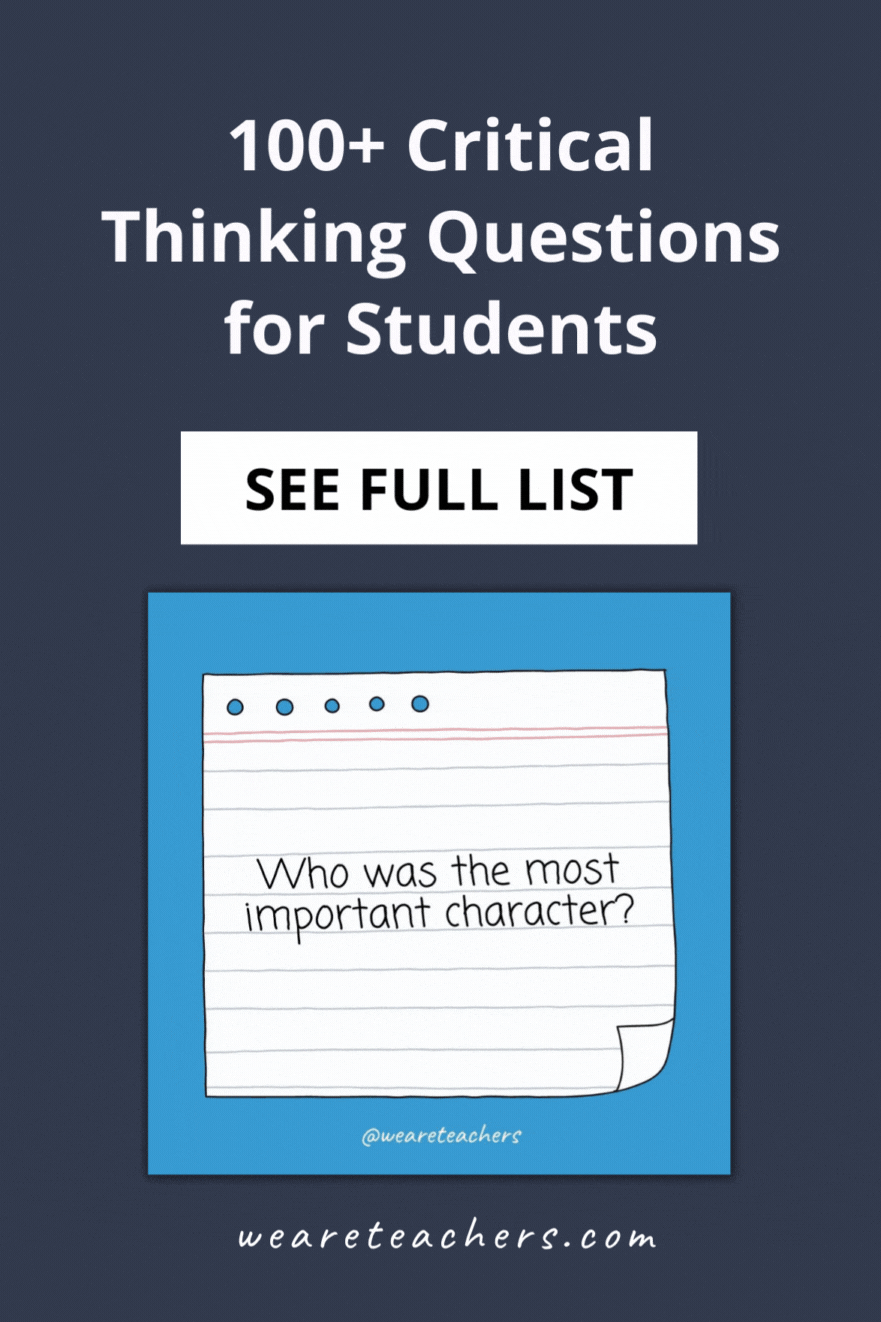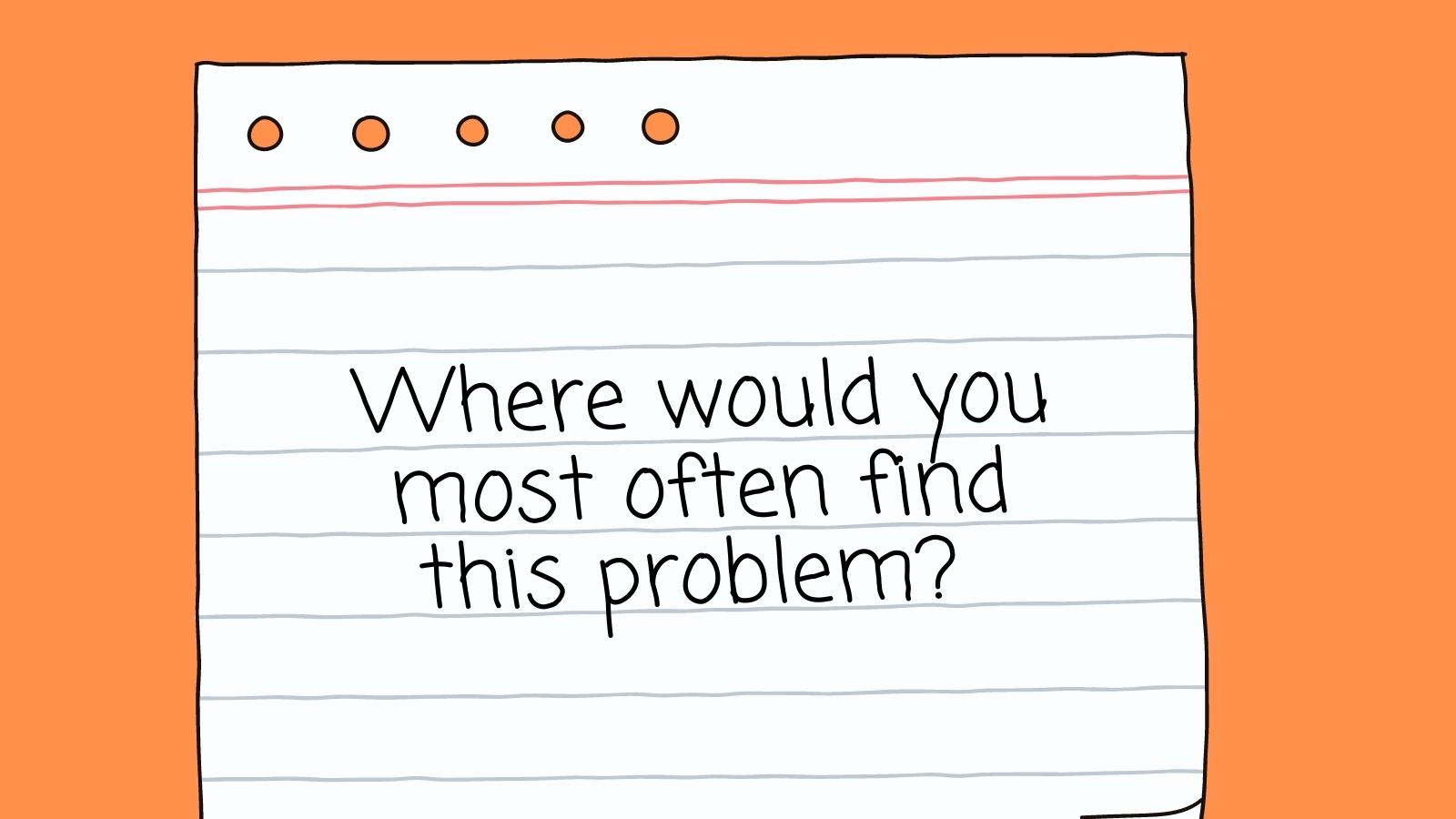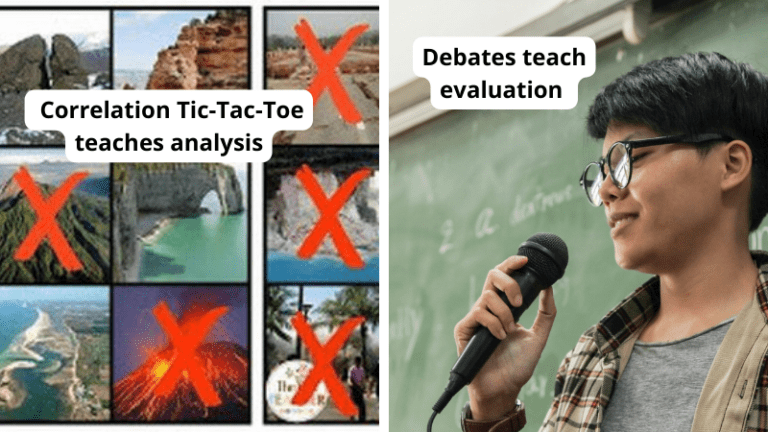In an age of “fake news” claims and constant argument about pretty much any issue, critical thinking skills are key. Teach your students that it’s vital to ask questions about everything, but that it’s also important to ask the right sorts of questions. Students can use these critical thinking questions with fiction or nonfiction texts. They’re also useful when discussing important issues or trying to understand others’ motivations in general.
“Who” Critical Thinking Questions
Questions like these help students ponder who’s involved in a story and how the actions affect them. They’ll also consider who’s telling the tale and how reliable that narrator might be.
WHO:
- Is the protagonist?
- Is the antagonist?
- Caused harm?
- Is harmed as a result?
- Was the most important character?
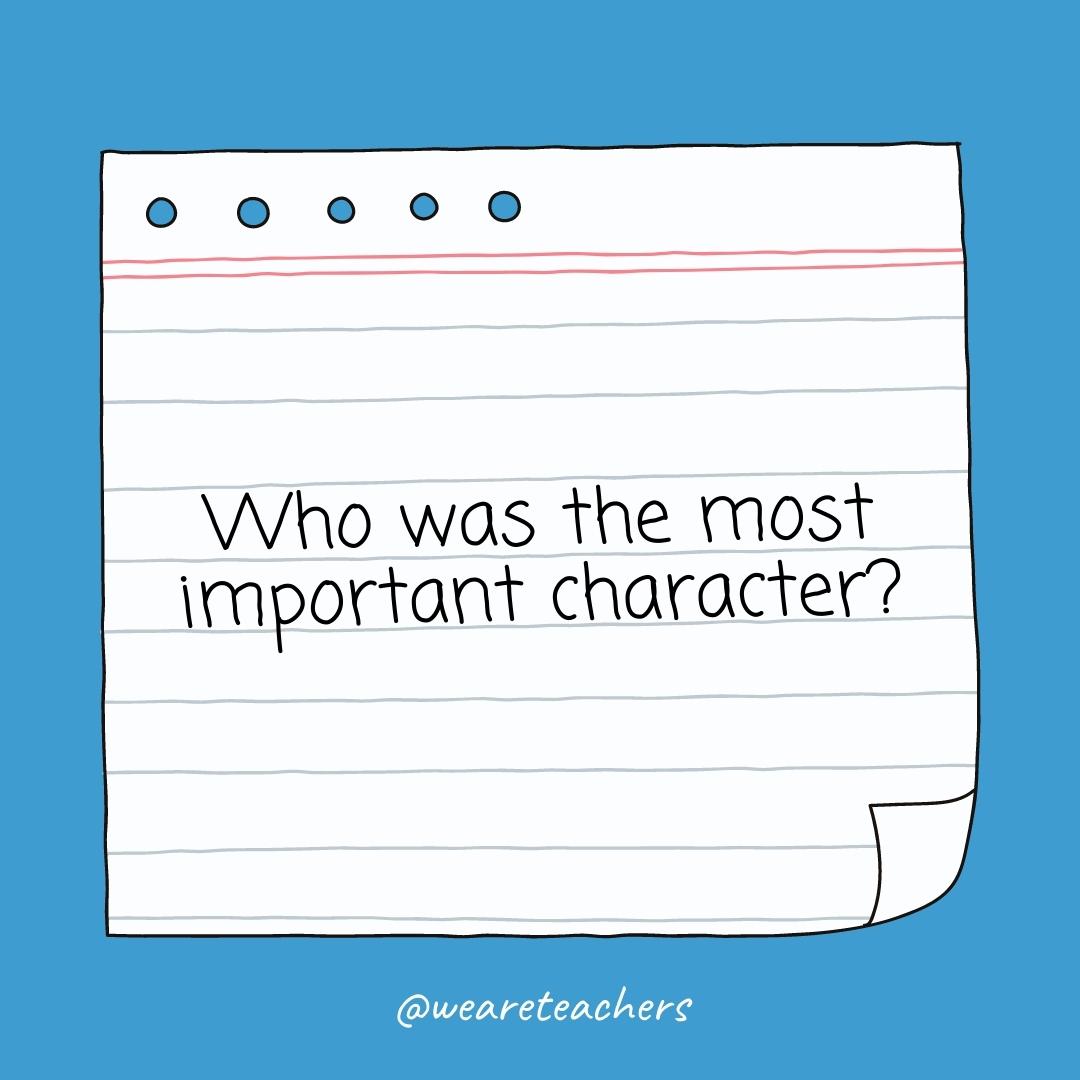
- Is responsible?
- Said it?
- Wrote it?
- Is most directly affected?
- Should have won?
- Will benefit?
- Would be affected by this?
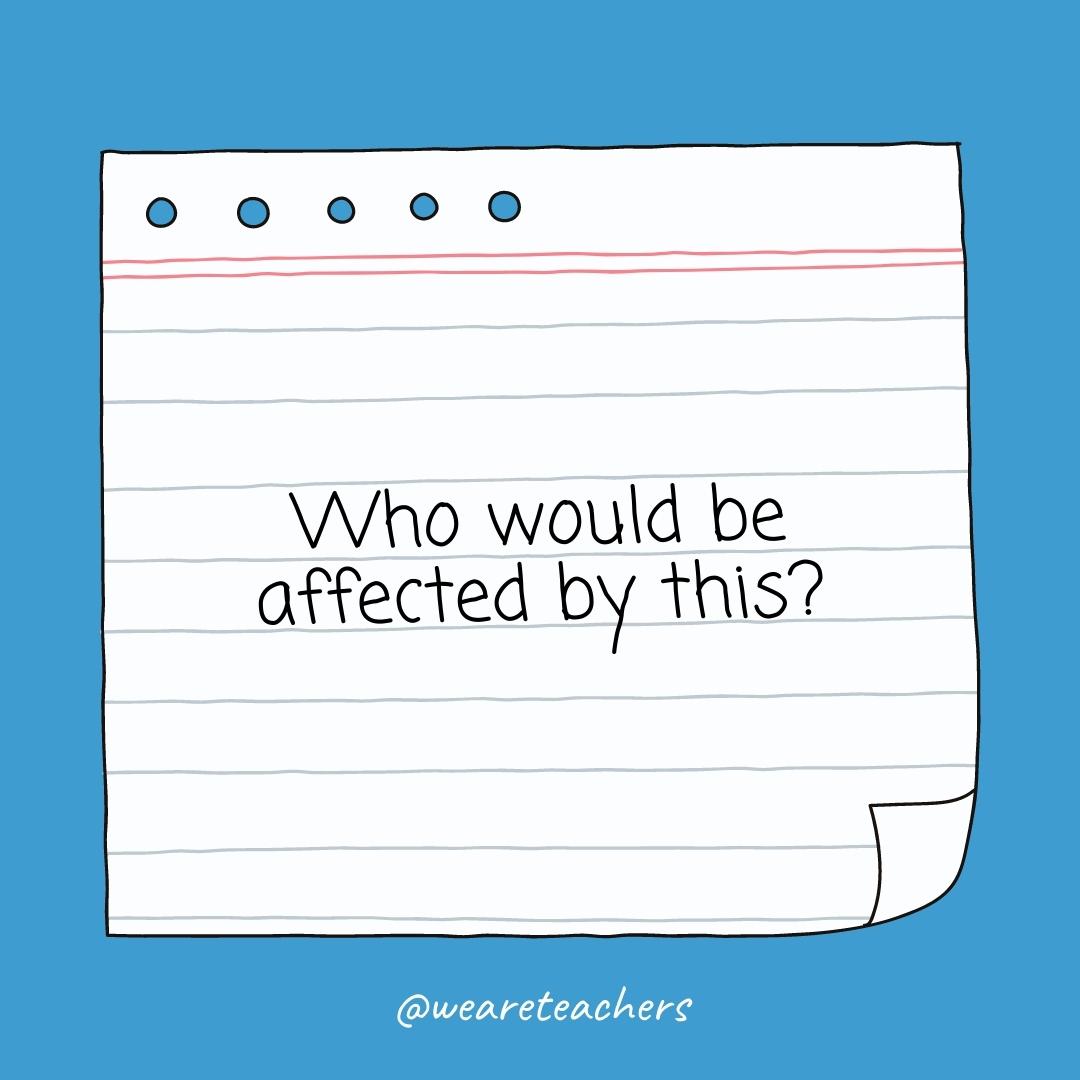
- Makes the decisions?
“What” Critical Thinking Questions
Ask questions that explore issues more deeply, including those that might not be directly answered in the text.
WHAT:
- Background information do I know or need to know?
- Is the main message?
- Are the defining characteristics?
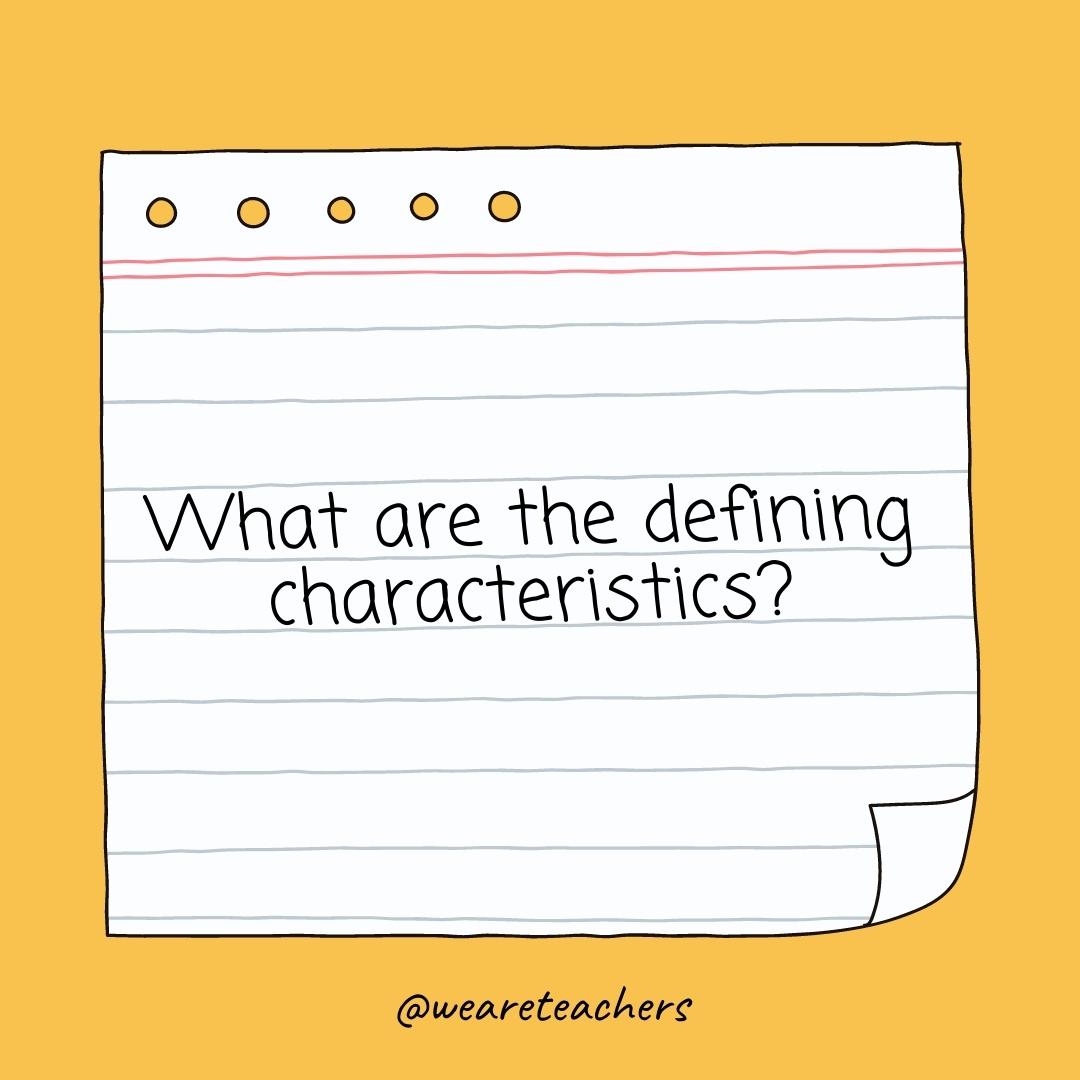
- Questions or concerns do I have?
- Don’t I understand?
- Evidence supports the author’s conclusion?
- Would it be like if … ?
- Could happen if … ?
- Other outcomes might have happened?
- Questions would you have asked?
- Would you ask the author about … ?
- Was the point of … ?
- Should have happened instead?
- Is that character’s motive?
- Else could have changed the whole story?
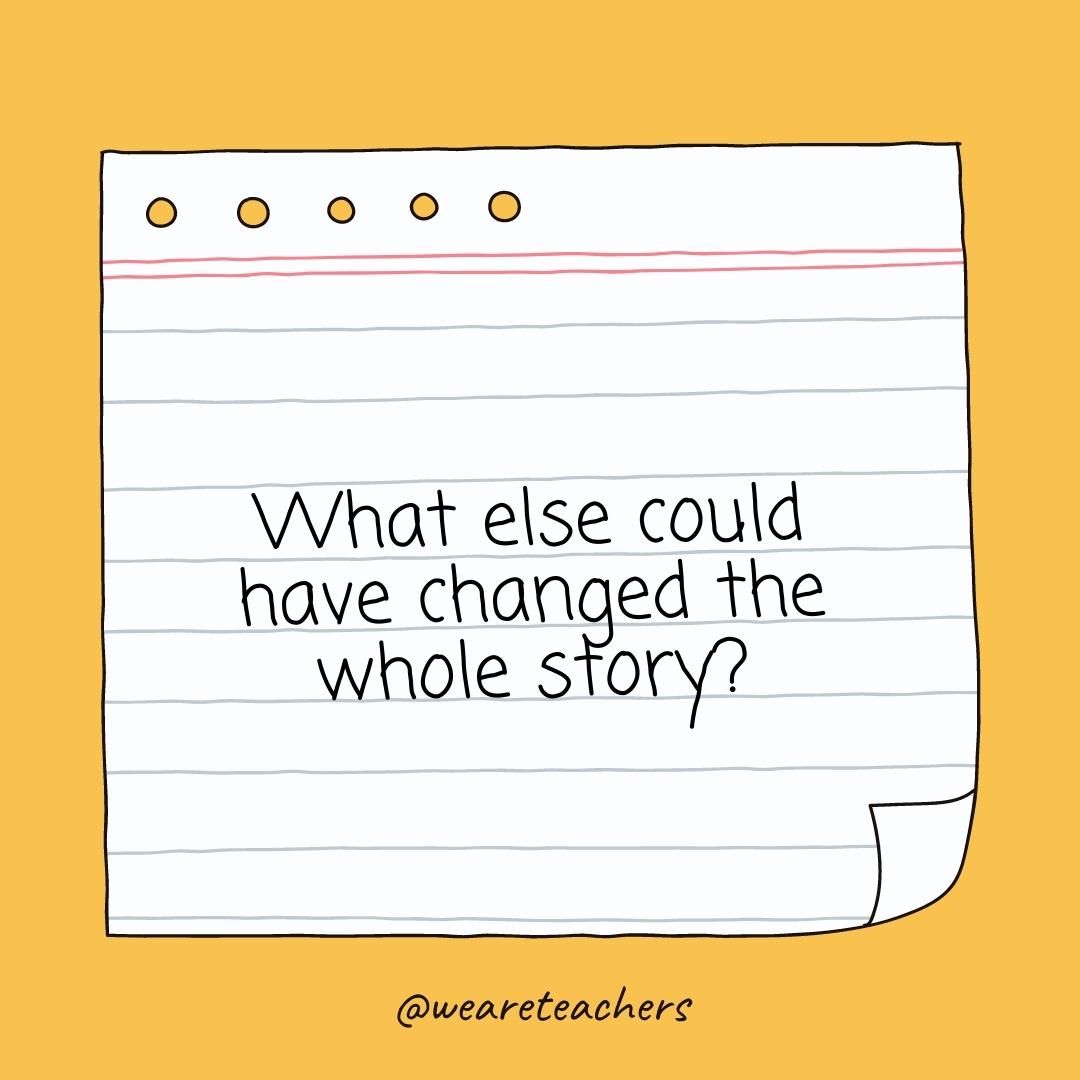
- Can you conclude?
- Would your position have been in that situation?
- Would happen if … ?
- Makes your position stronger?
- Was the turning point?
- Is the point of the question?
- Did it mean when … ?
- Is the other side of this argument?
- Was the purpose of … ?
- Does ______ mean?
- Is the problem you are trying to solve?
- Does the evidence say?
- Assumptions are you making?
- Is a better alternative?
- Are the strengths of the argument?
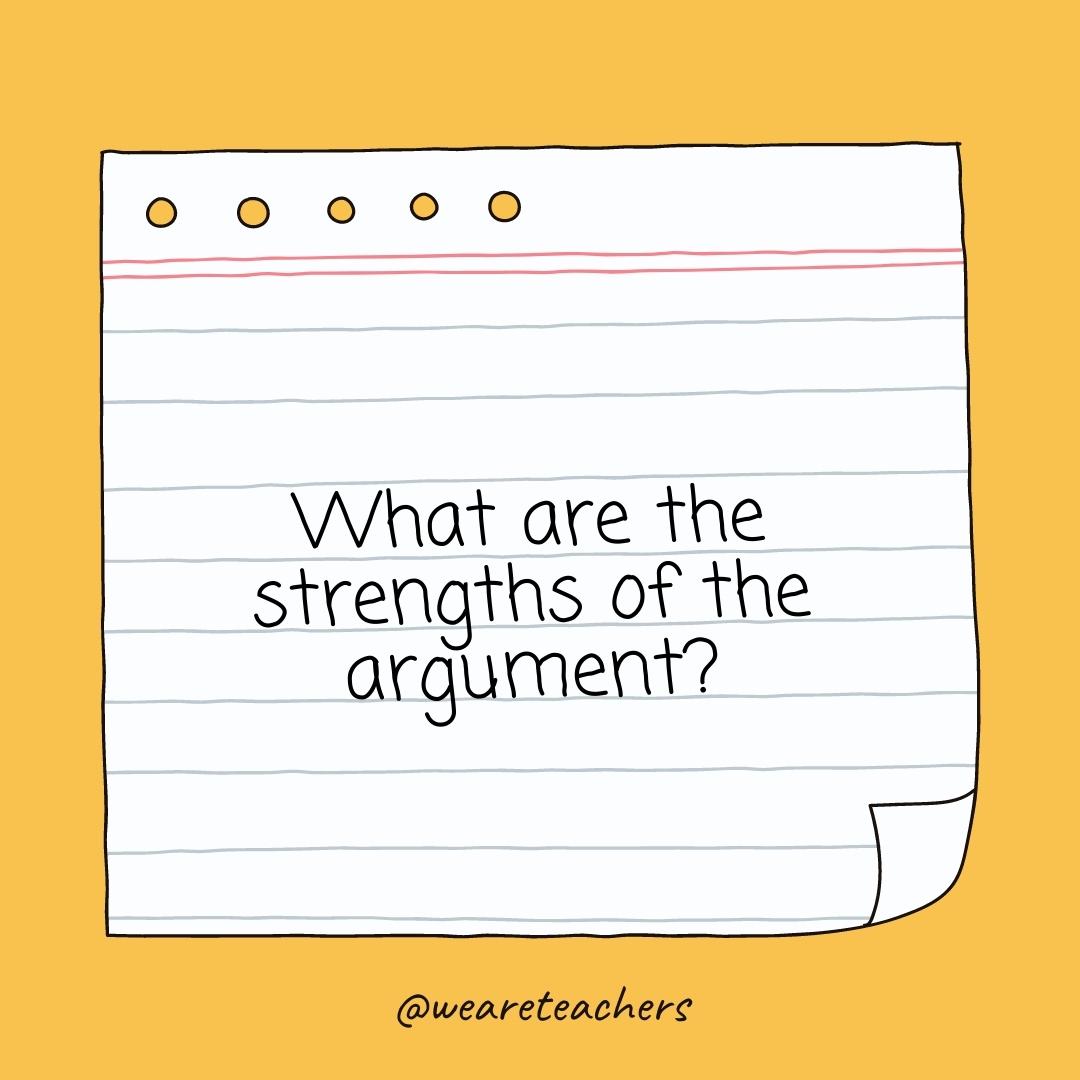
- Are the weaknesses of the argument?
- Is the difference between _______ and _______?
“Where” Critical Thinking Questions
Think about where the story is set and how it affects the actions. Plus, consider where and how you can learn more.
WHERE:
- Would this issue be a major problem?
- Are areas for improvement?
- Did the story change?
- Would you most often find this problem?

- Are there similar situations?
- Would you go to get answers to this problem?
- Can this be improved?
- Can you get more information?
- Will this idea take us?
“When” Critical Thinking Questions
Think about timing and the effect it has on the characters or people involved.
WHEN:
- Did the story change?
- Is this acceptable?
- Is this unacceptable?
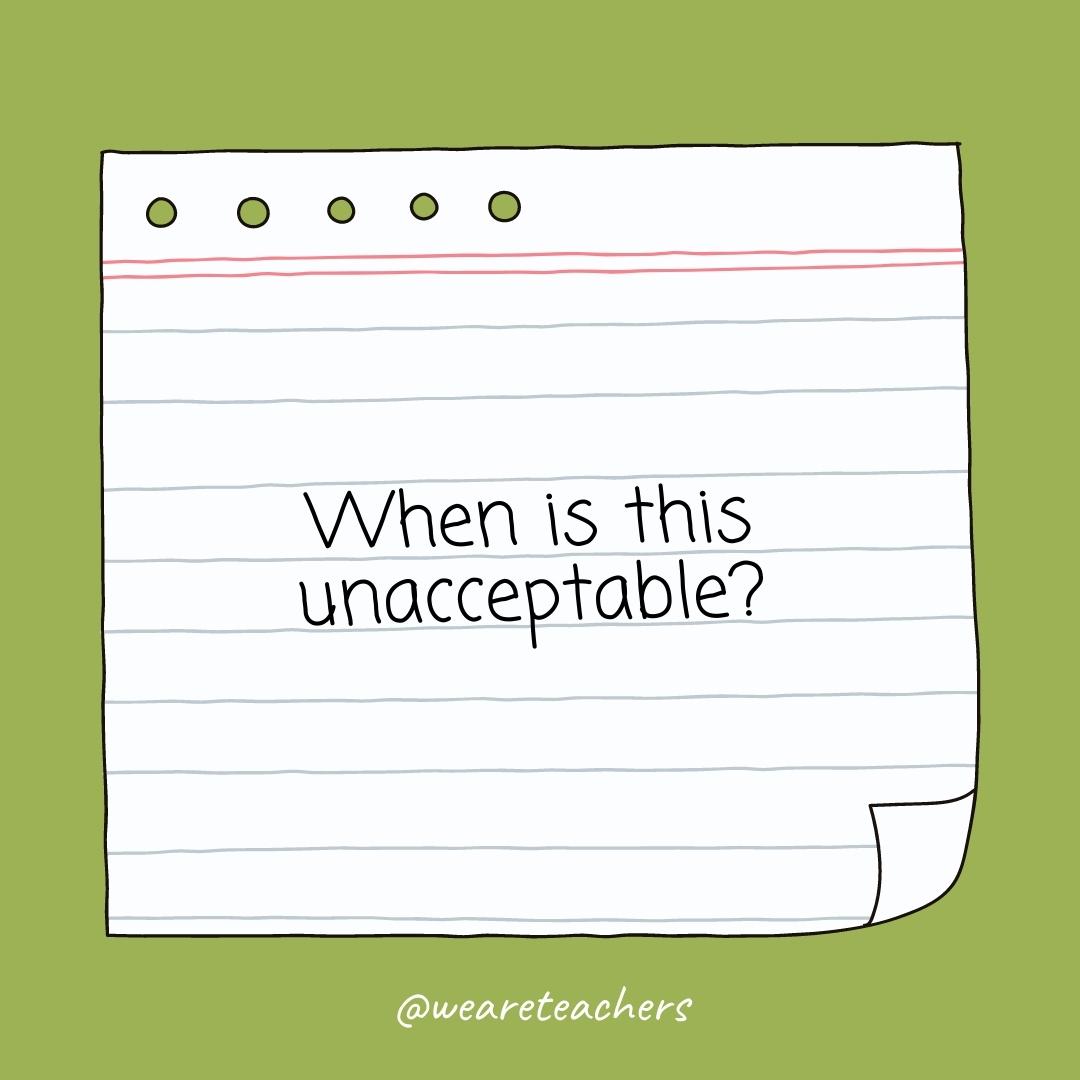
- Does this become a problem?
- Is the best time to take action?
- Will we be able to tell if it worked?
- Is it time to reassess?
- Should we ask for help?
- Is the best time to start?
- Is it time to stop?
- Would this benefit society?
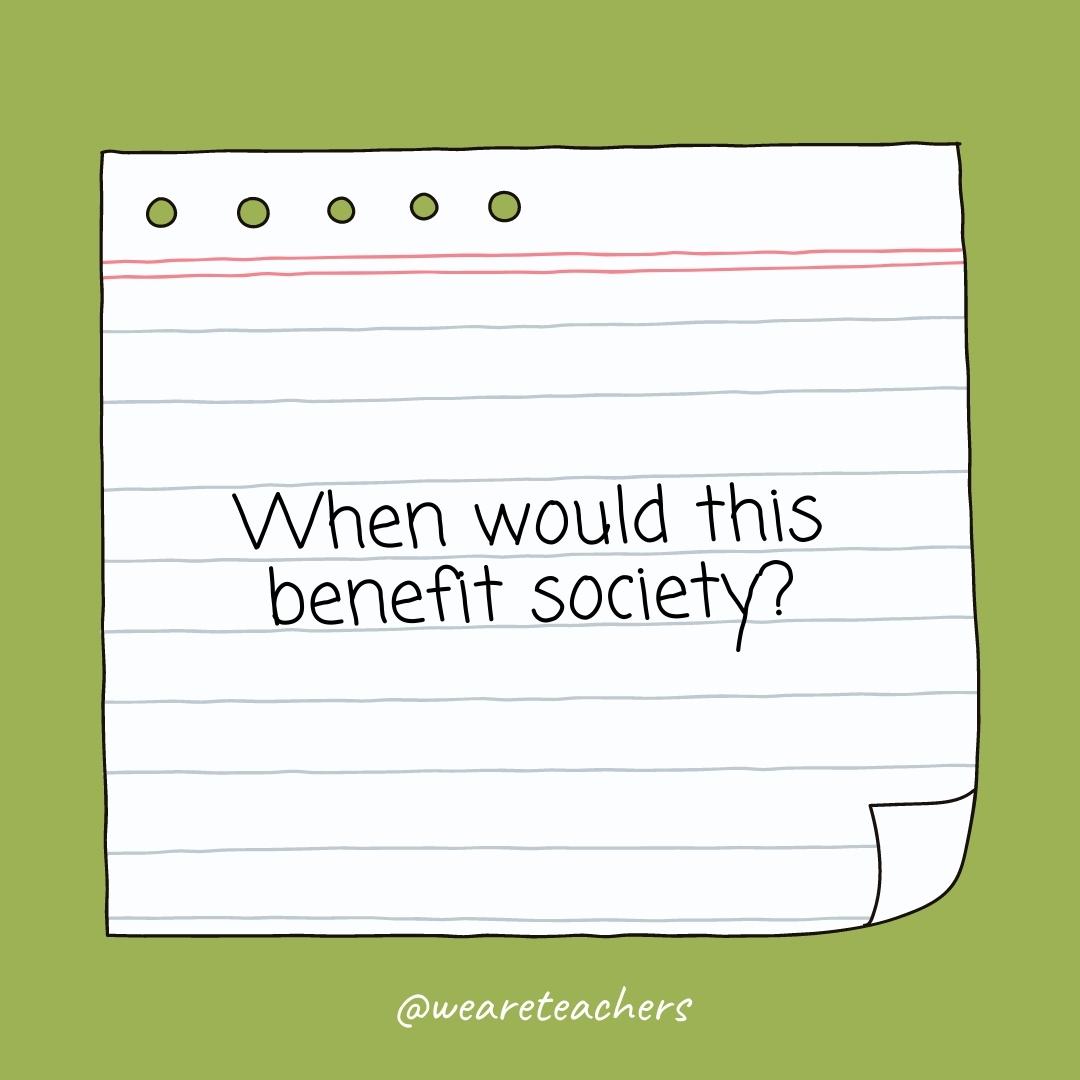
- Has this happened before?
“Why” Critical Thinking Questions
Asking “why” might be one of the most important parts of critical thinking. Exploring and understanding motivation helps develop empathy and make sense of difficult situations.
WHY:
- Is _________ happening?
- Have we allowed this to happen?
- Should people care about this issue?
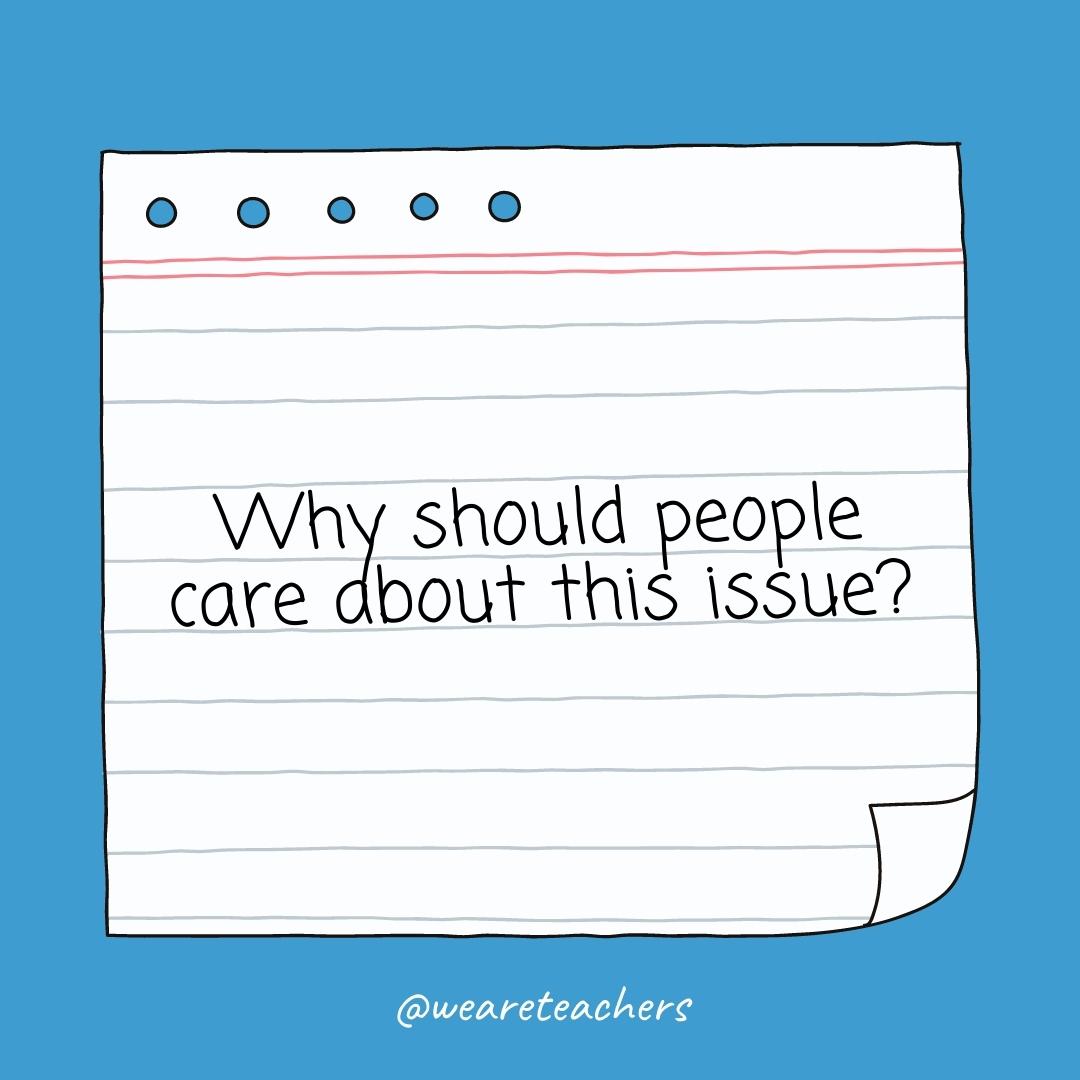
- Is this a problem?
- Did the character say … ?
- Did the character do … ?
- Is this relevant?
- Did the author write this?
- Did the author decide to … ?
- Is this important?
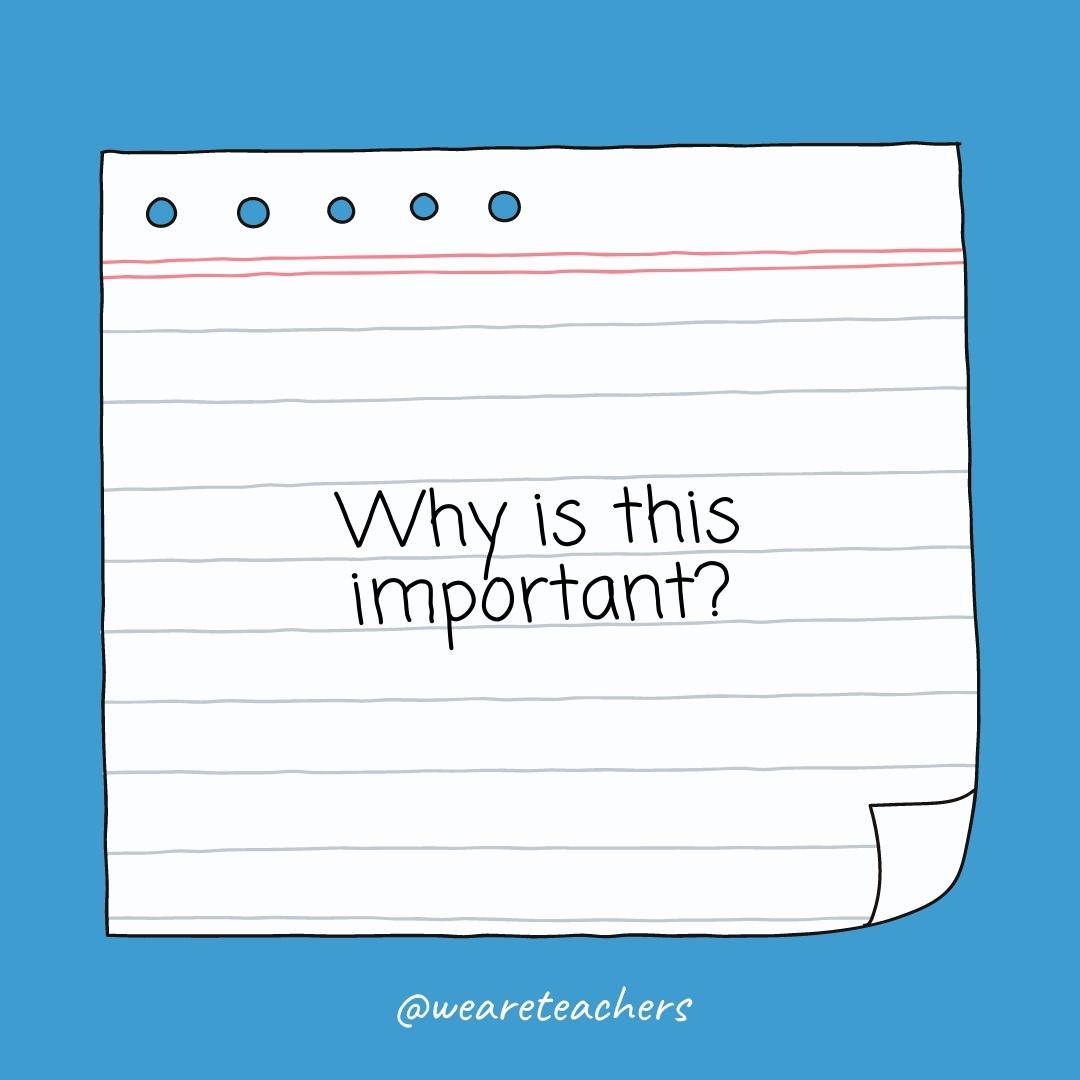
- Did that happen?
- Is it necessary?
- Do you think I (he, she, they) asked that question?
- Is that answer the best one?
- Do we need this today?
“How” Critical Thinking Questions
Use these questions to consider how things happen and whether change is possible.
HOW:
- Do we know this is true?
- Does the language used affect the story?
- Would you solve … ?
- Is this different from other situations?
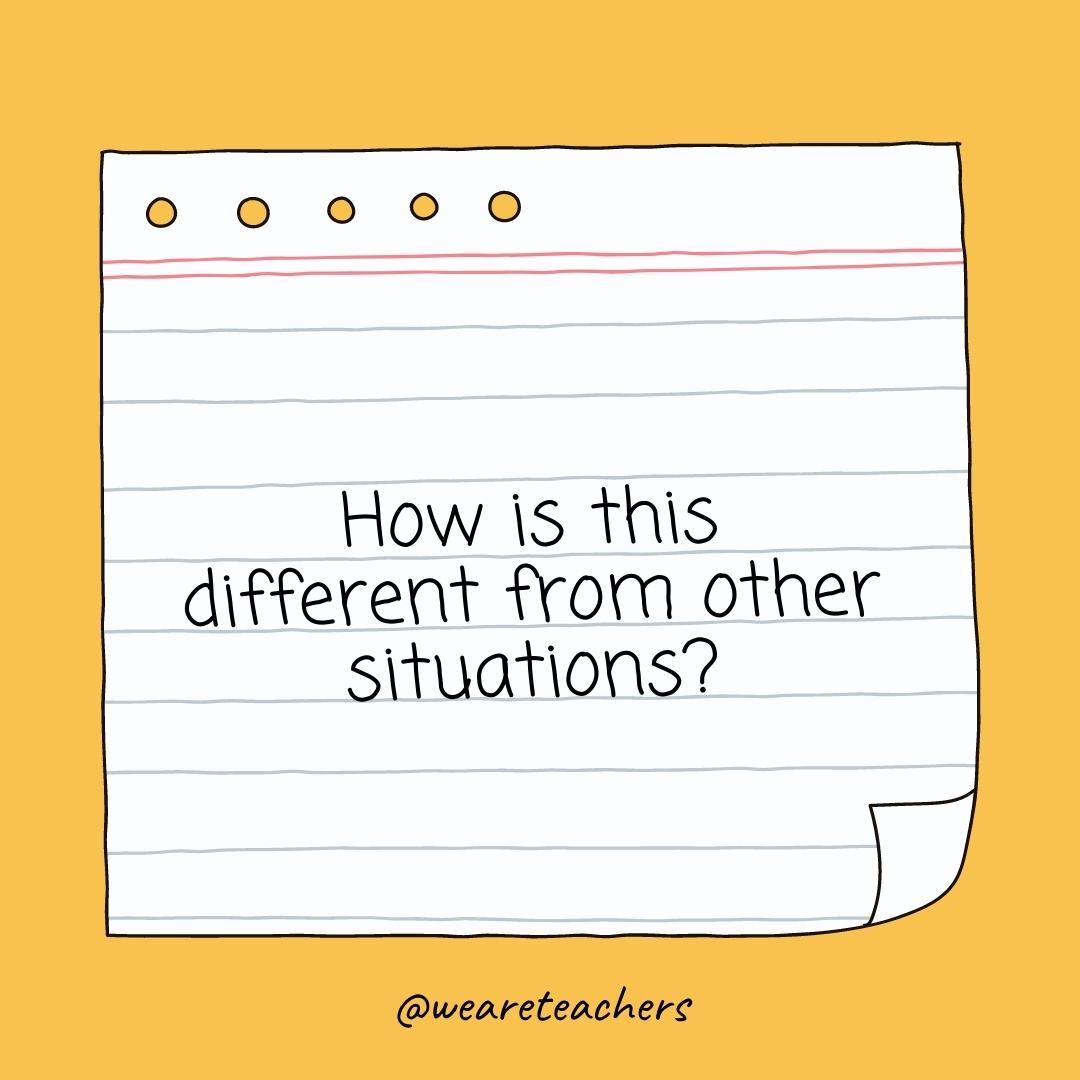
- Is this similar to … ?
- Would you use … ?
- Does the location affect the story?
- Could the story have ended differently?
- Does this work?
- Could this be harmful?
- Does this connect with what I already know?
- Else could this have been handled?
- Should they have responded?
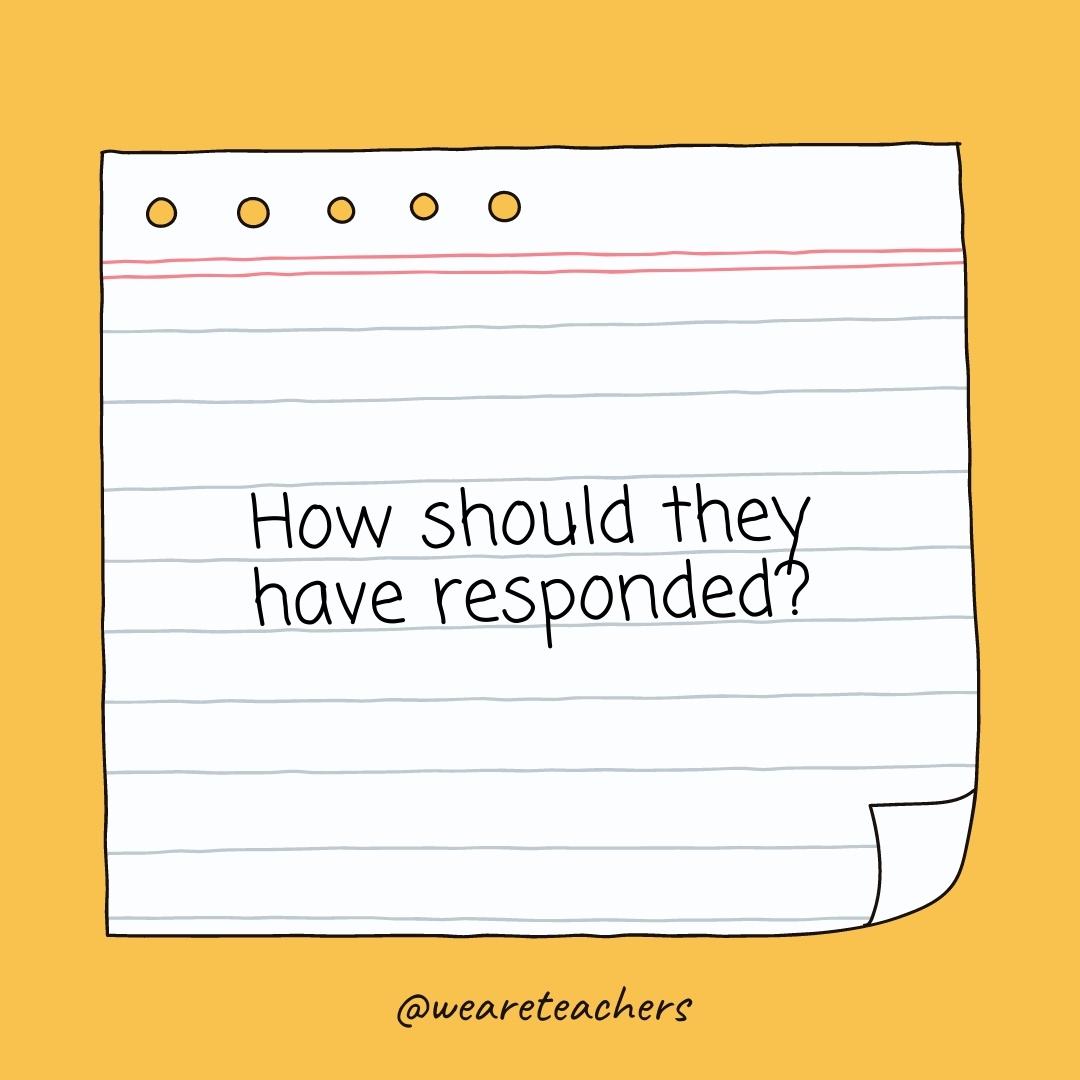
- Would you feel about … ?
- Does this change the outcome?
- Did you make that decision?
- Does this benefit you/others?
- Does this hurt you/others?
- Could this problem be avoided?
More Critical Thinking Questions
Here are more questions to help probe further and deepen understanding.
- Can you give me an example?
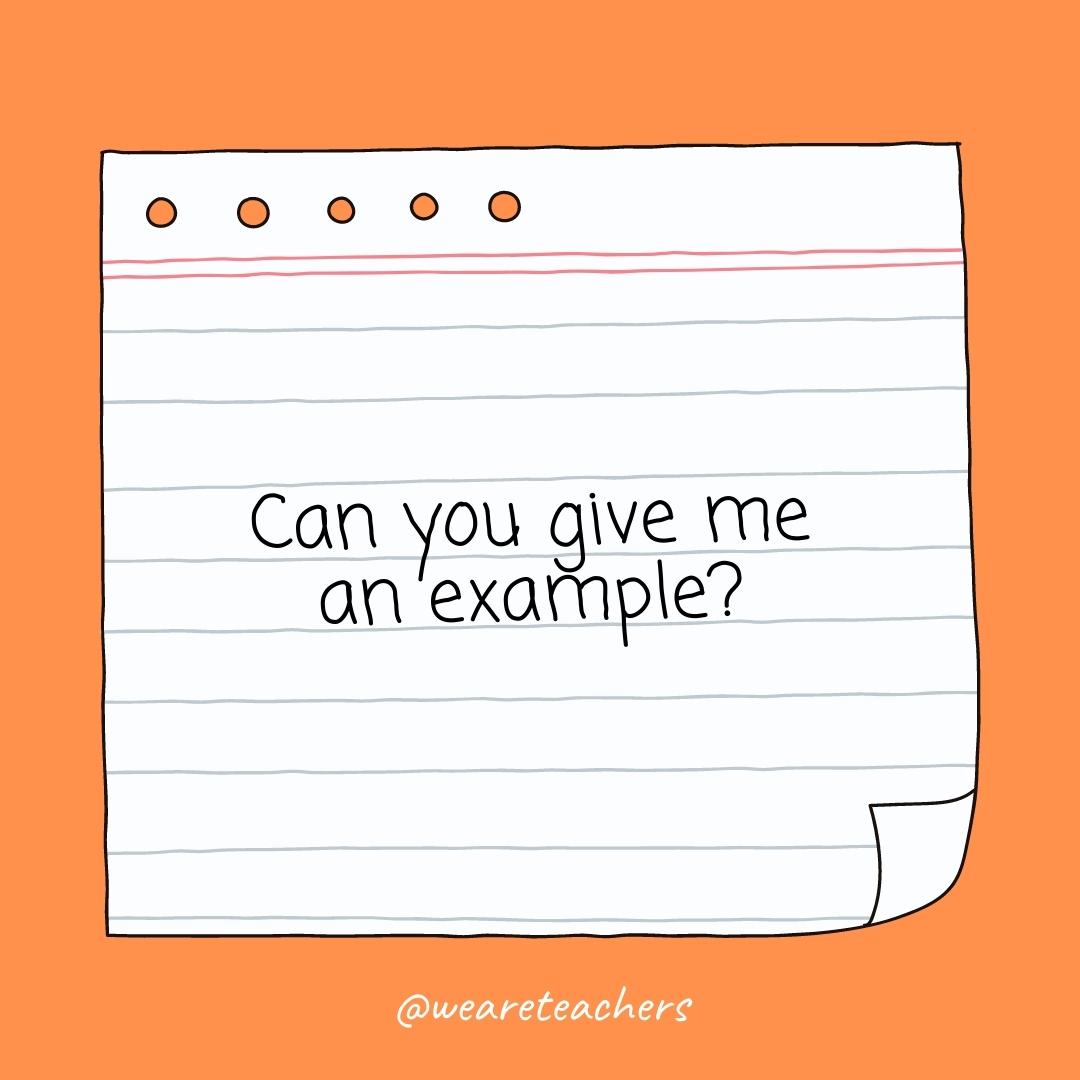
- Do you agree with … ?
- Can you compare this with … ?
- Can you defend the actions of … ?
- Could this be interpreted differently?
- Is the narrator reliable?
- Does it seem too good to be true?
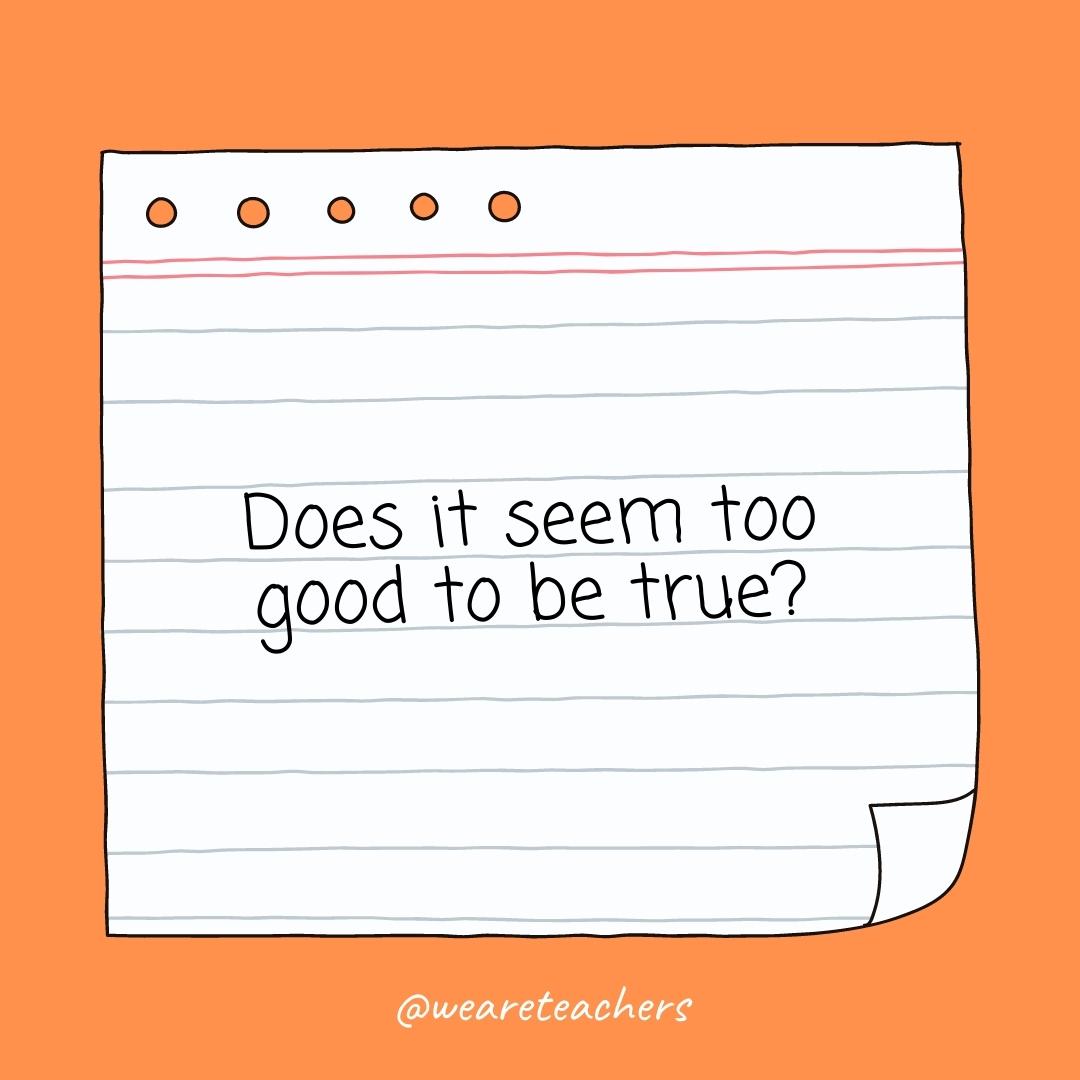
- Is ______ a fact or an opinion?
What are your favorite critical thinking questions? Come exchange ideas on the WeAreTeachers HELPLINE group on Facebook.
Plus, check out 10 Tips for Teaching Kids To Be Awesome Critical Thinkers.
